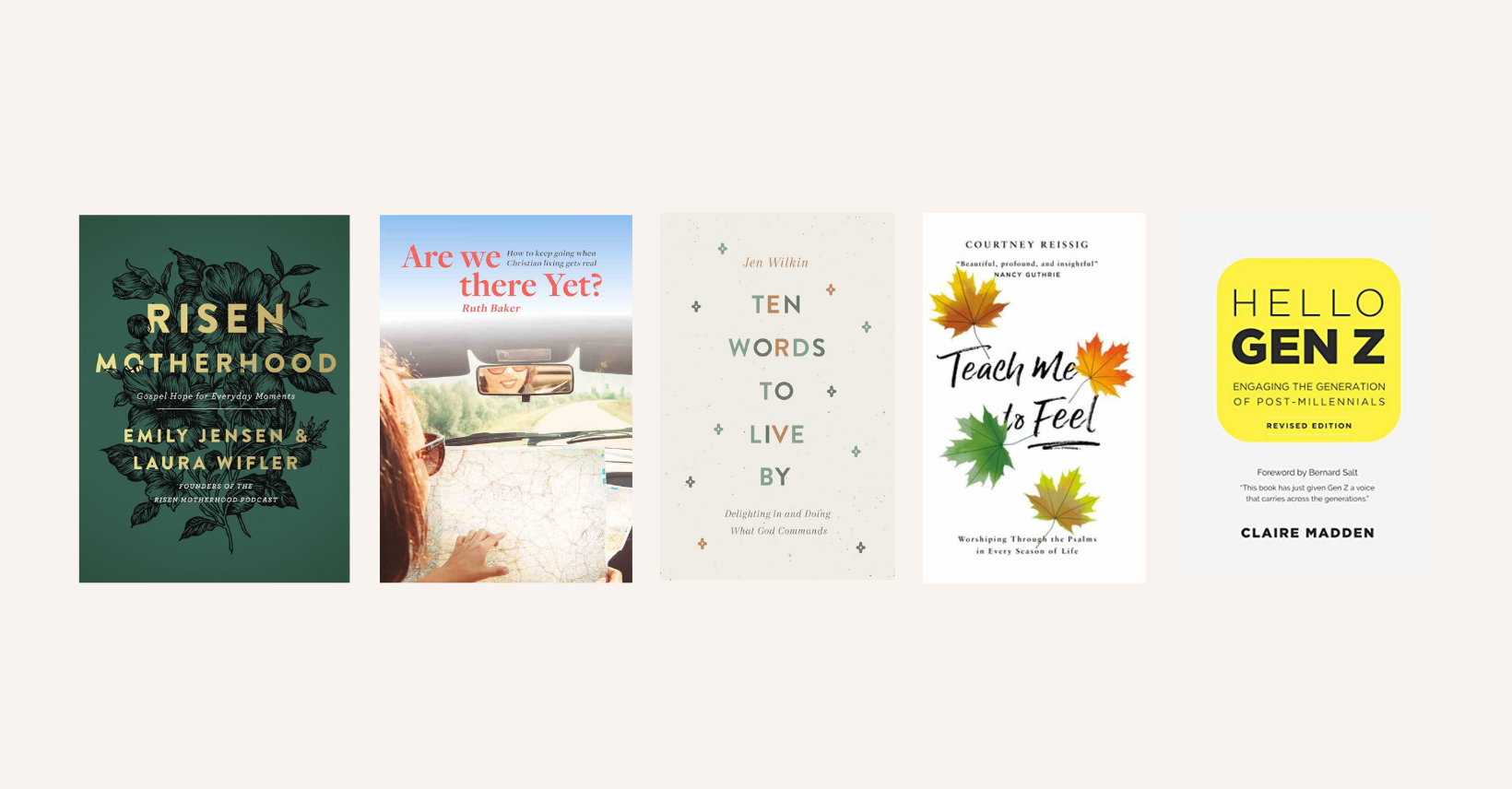I’m so pleased to share the books that shaped my reflections, ministry and words for 2021. The selection includes books about delighting in the 10 Commandments, maintaining spiritual disciplines, gospel-centred motherhood, expressing emotion and understanding Generation Z!
Thank you to Jen Wilkin, Ruth Baker, Laura Wifler, Emily Jensen, Claire Madden and Courtney Reissig for sharing your wisdom with the world!
1. Ten Words to Live By: Delighting in and Doing What God Commands (Jen Wilkin)
As a boundary-pusher who is often tempted to cheapen the gospel of grace, this book has been the best thing for my soul! In ‘Ten Words to Live By’, Jen Wilkin wisely challenges the notion “Christianity isn’t about following rules, it’s about a relationship” and explores how the phrase’s popularity has impacted attitudes towards God in the modern church. In each short chapter, Wilkin breathes life into the Ten Commandments and helps readers to delight in God’s commands. Each chapter ends with discussion questions and verses for meditation to prompt personal reflection, confession and repentance. Whether you’re inclined towards rebellion or legalism, this book will give you a fresh perspective of the Ten Commandments and a compelling reason for Christ-honouring obedience in a post-truth world.
2. Are We There Yet? How To Keep Going When Christian Living Gets Real (Ruth Baker)
As Christians, we’re told to read our bibles, pray and to prioritise church and community…but why? We know these disciplines are important ingredients for growth, so why is it so hard to do and how can we get back on track? Drawing wisdom from the Bible, real-life experiences and personal growth tools, ‘Are We There Yet?‘ answers these important questions with gentleness, clarity and good Australian humour. Each chapter empowered me to persevere with each discipline with faith and intentionality and to break the habit of doing “churchy things” on autopilot. As Ruth did not grow up in a religious home, she is able to empathise with new believers and explain theological concepts with minimal jargon. For this reason, I would highly recommend this book for training, equipping and discipling new converts as well.
3. Risen Motherhood: Gospel Hope for Everyday Moments (Laura Wifler and Emily Jensen)
I picked up ‘Risen Motherhood’ while pregnant and found most of the chapters to be relatable, grounded in Scripture and full of gospel hope. I appreciate that the book challenges culture’s values around pregnancy and parenting, and shares how the gospel is different and presents a greater hope! The chapters are short and bite sized, and so suitable for Mums who are feeling time-poor and sleep deprived! The chapters end with discussion questions which can be used for personal reflection or group discussion. While the gospel-centred parenting framework will benefit all readers, the illustrations and parenting challenges presented in the book will resonate best with middle/upper class parents in a Western context.
4. Hello Gen Z: Engaging the Generation of Post-Millennials (Claire Madden)
In ‘Hello Gen Z’, Australian social researcher, Claire Madden unveils the minds and motivations of Generation Z! Using a combination of research, quotes, and even a glossary of Gen Z vocab, Madden shows us the events and triggers that have shaped Gen Z’s thoughts and attitudes. I appreciated that the book paints Gen Z in a positive light, and helps readers to understand how and why their worldview is different to previous generations (Baby Boomers, Gen X and Gen Y). I recommend this book to anyone who wants to learn the language of Gen Z and how to engage with them—whether in-person or via texts—in a meaningful and constructive way.
5. Teach Me to Feel: Worshiping Through the Psalms in Every Situation (Courtney Reissig)
In ‘Teach Me to Feel’, Courtney Reissig unpacks 22 different emotions including anger, anxiety, contentment and full of praise. Using the Psalms as a guide, Reissig does a good job of validating our emotions without compromising the authority of Scripture. She asserts that humans were ‘created to feel’ and that Christians should neither suppress nor be led by emotion. Instead, our feelings should lead us to appreciate God more and to grow in our faith. Whether you’re feeling emotionally disengaged or overwhelmed, this book will encourage you to bring your thoughts and feelings to God, so that you deepen your trust in Him. The illustrations in this book will resonate better with women and includes Courtney’s experiences of miscarriage, infertility and pregnancy complications.
Over to you – what was the best book you read in 2021?
Let me know in the comments below!
